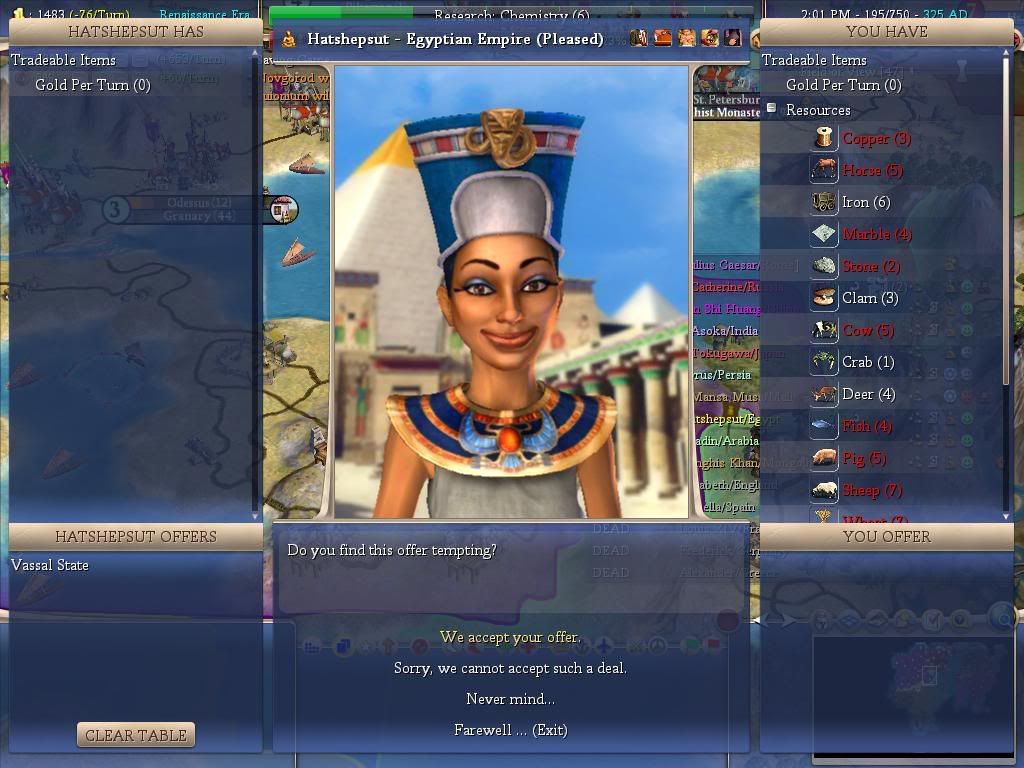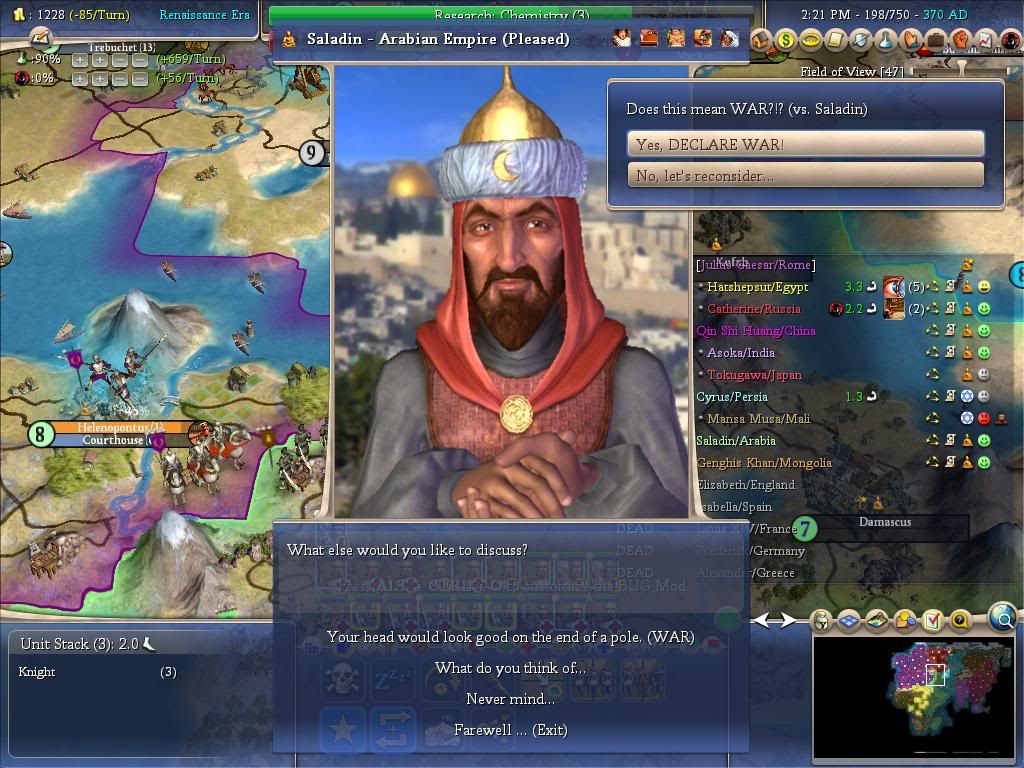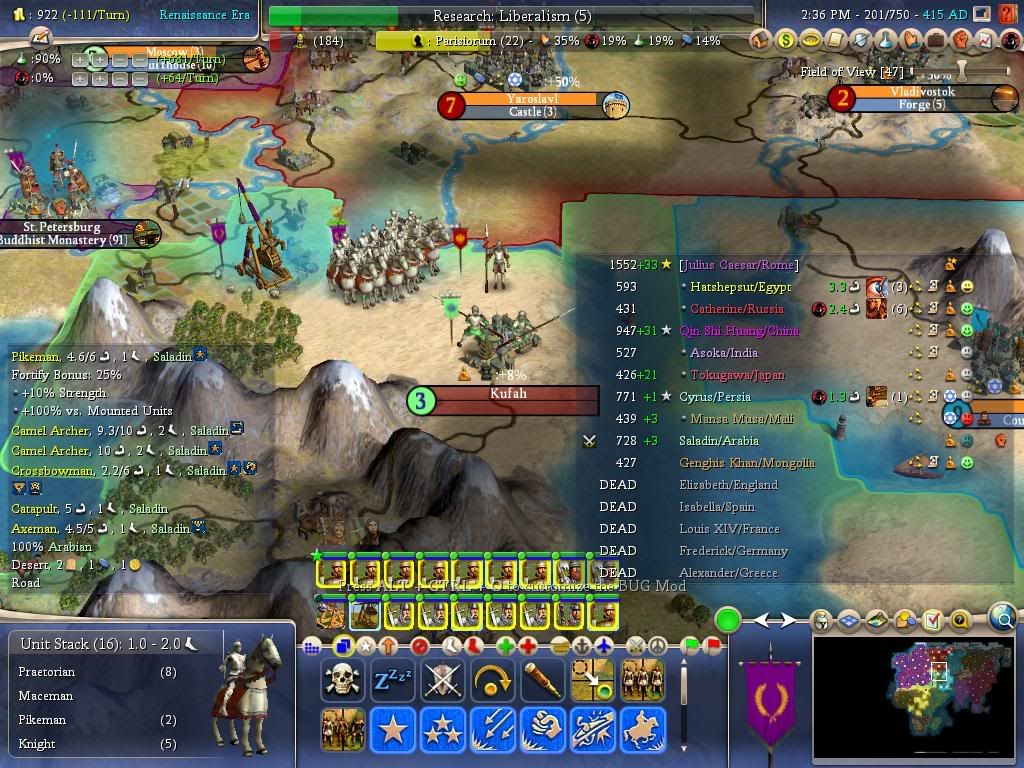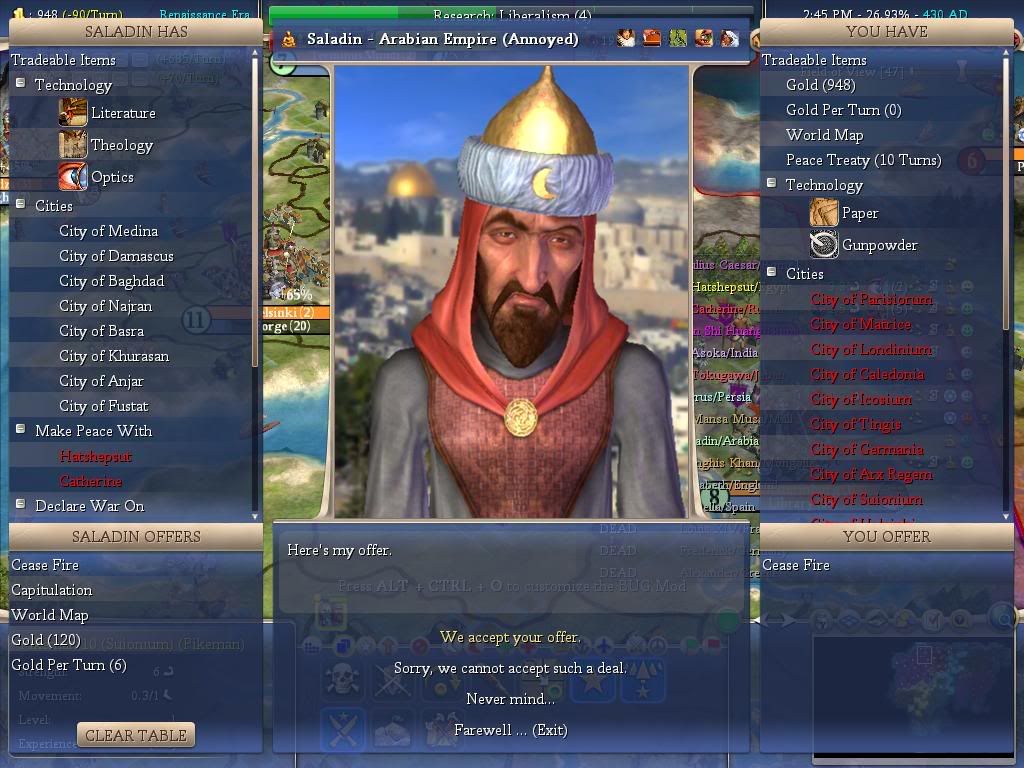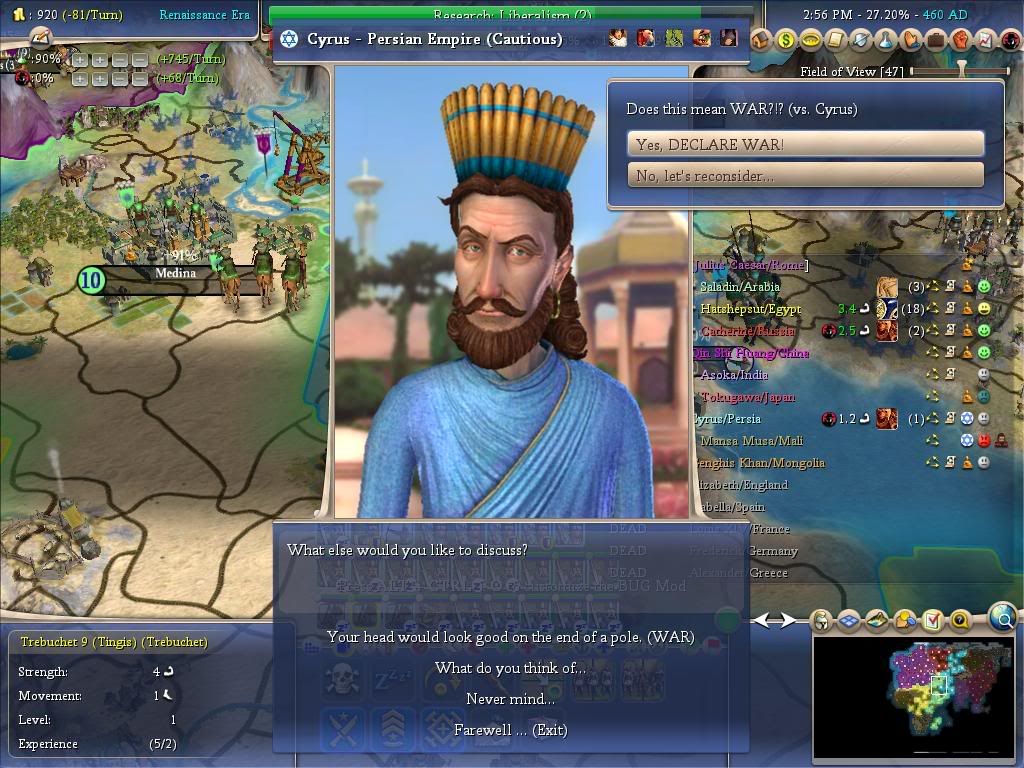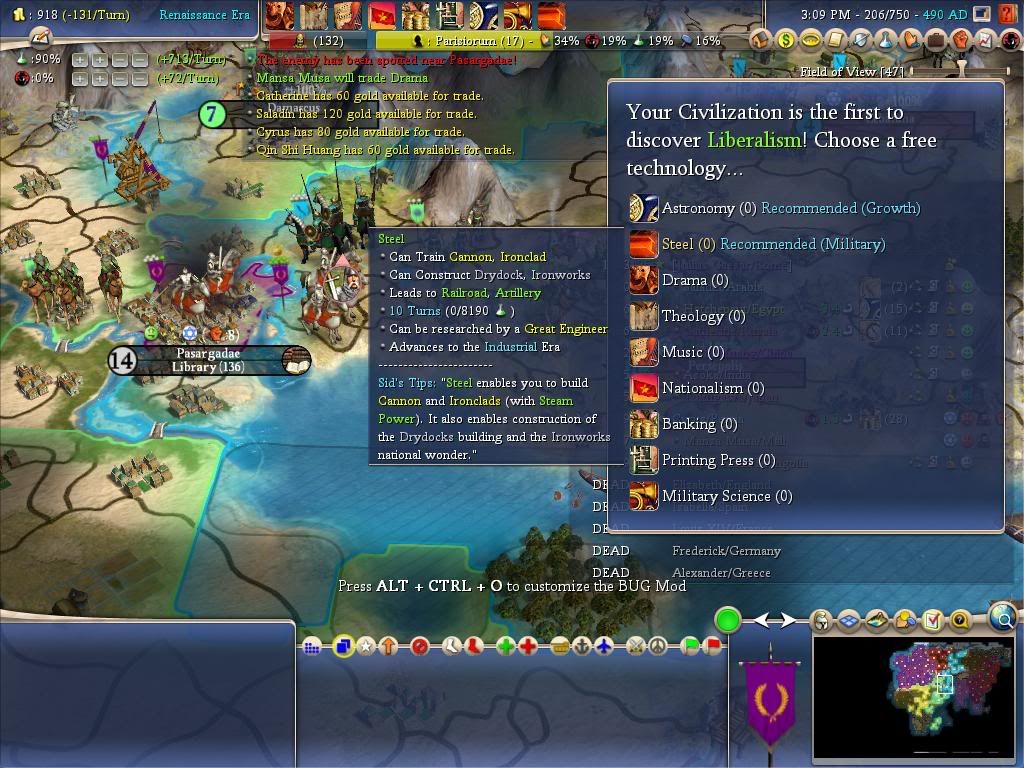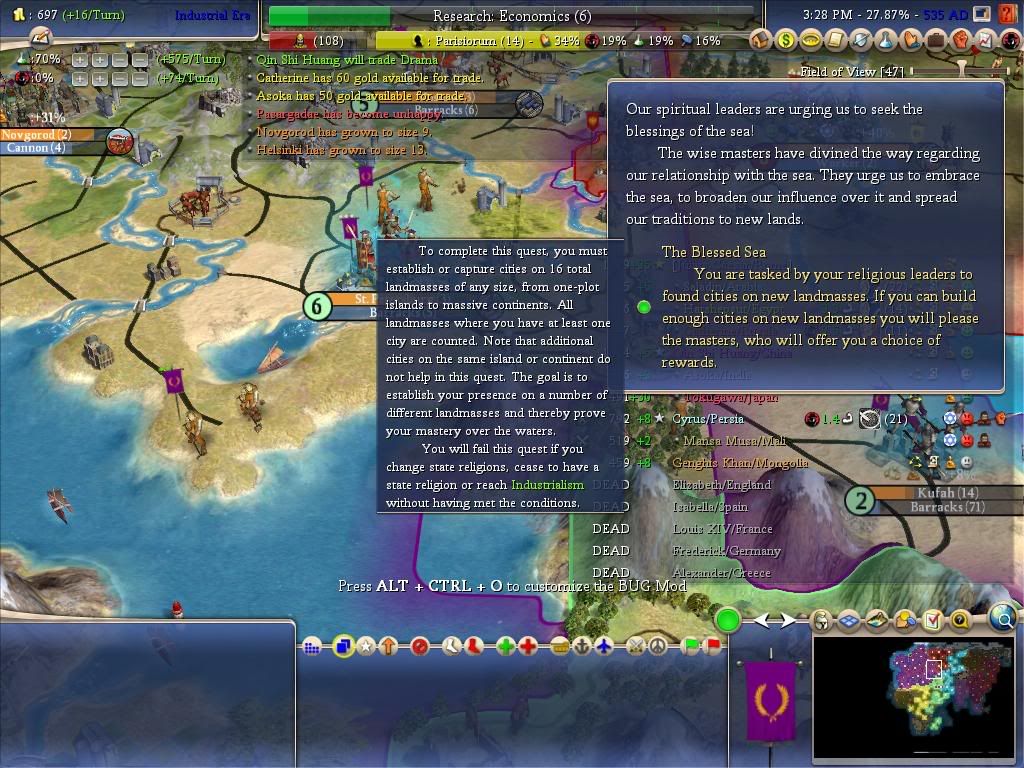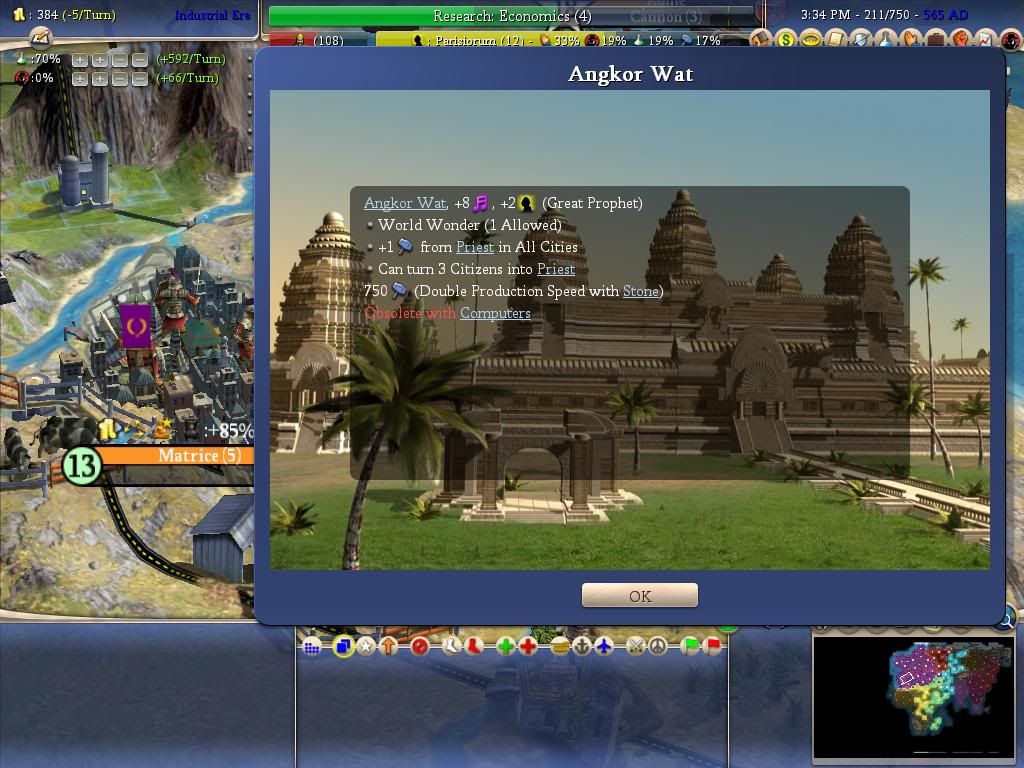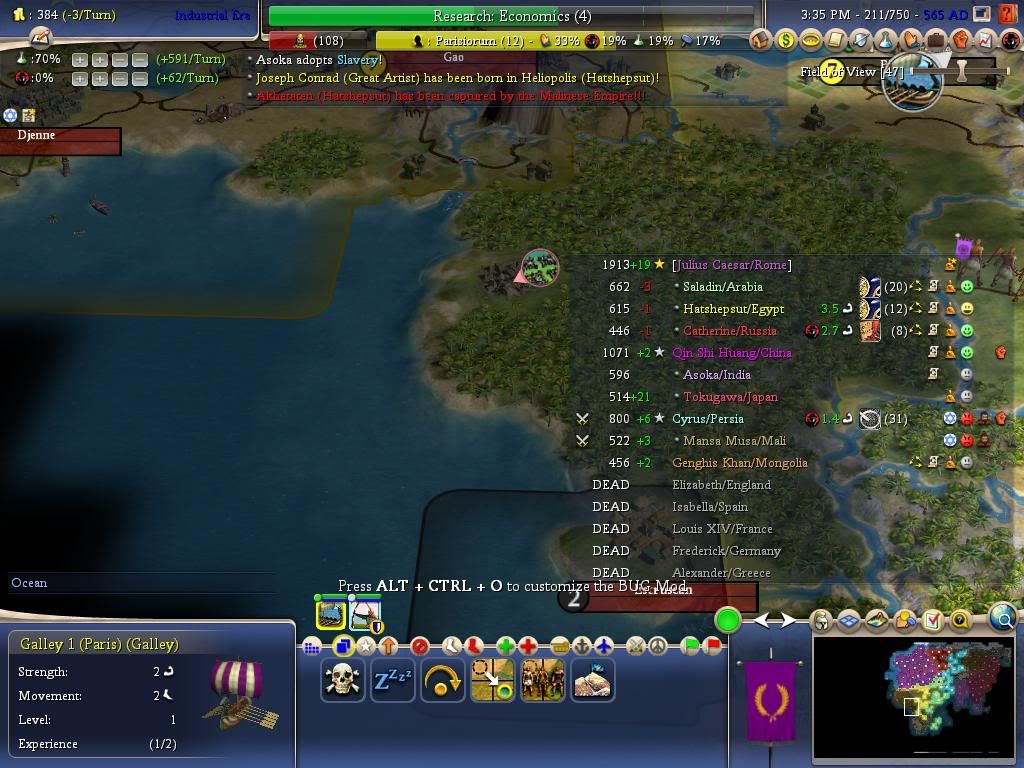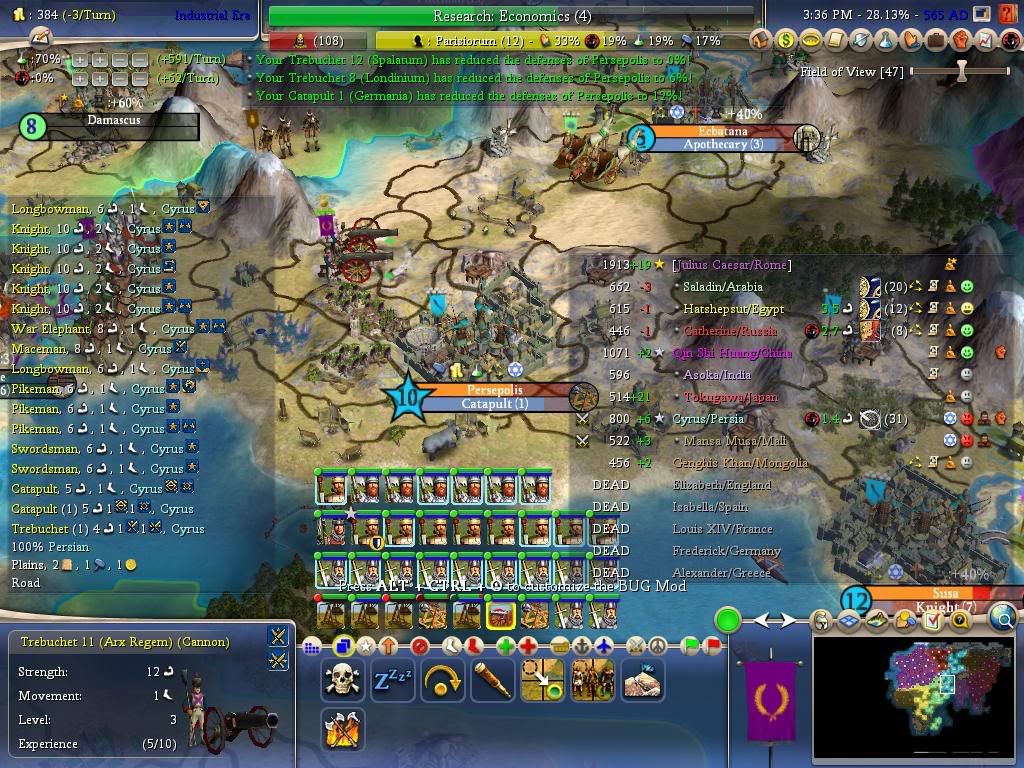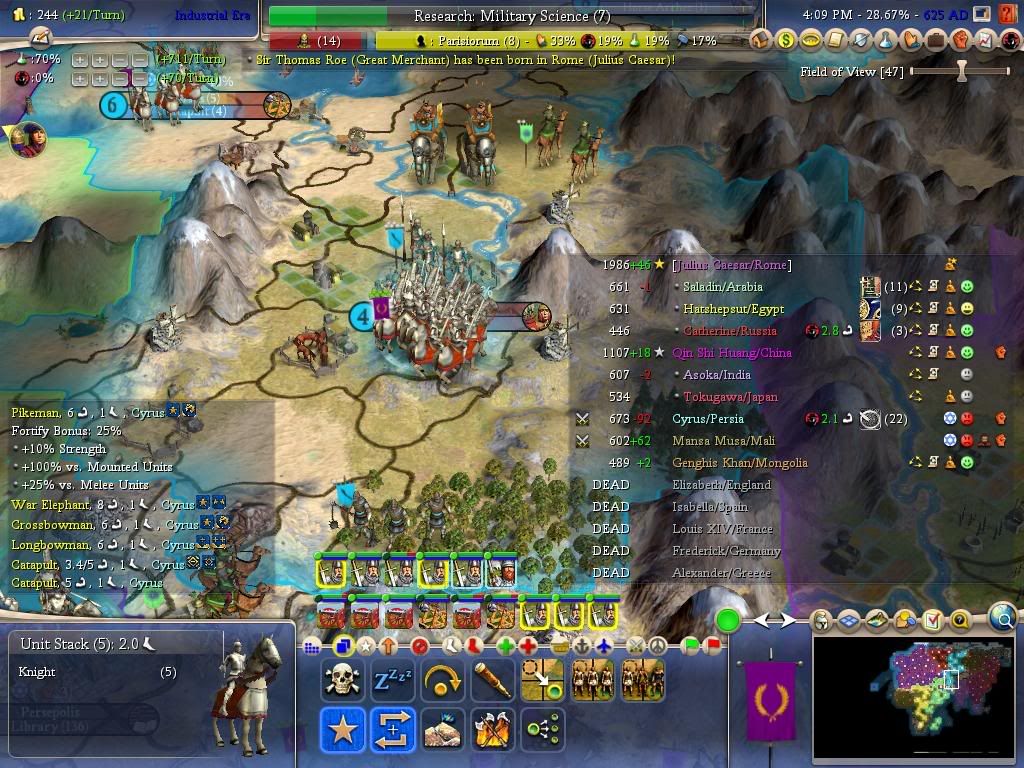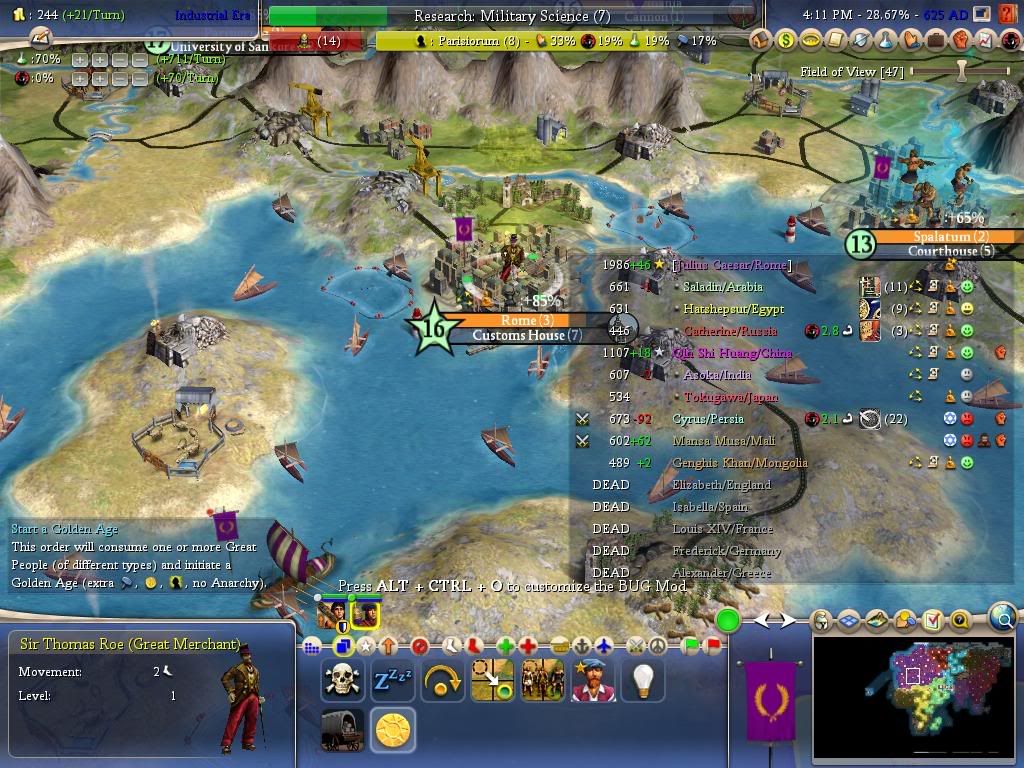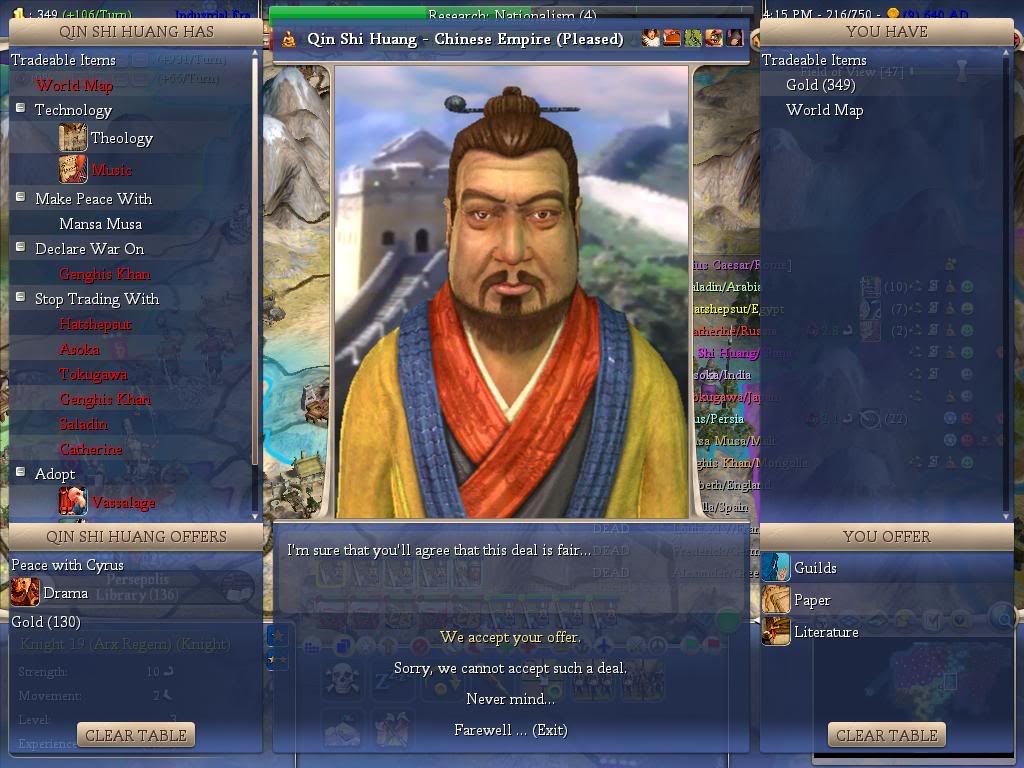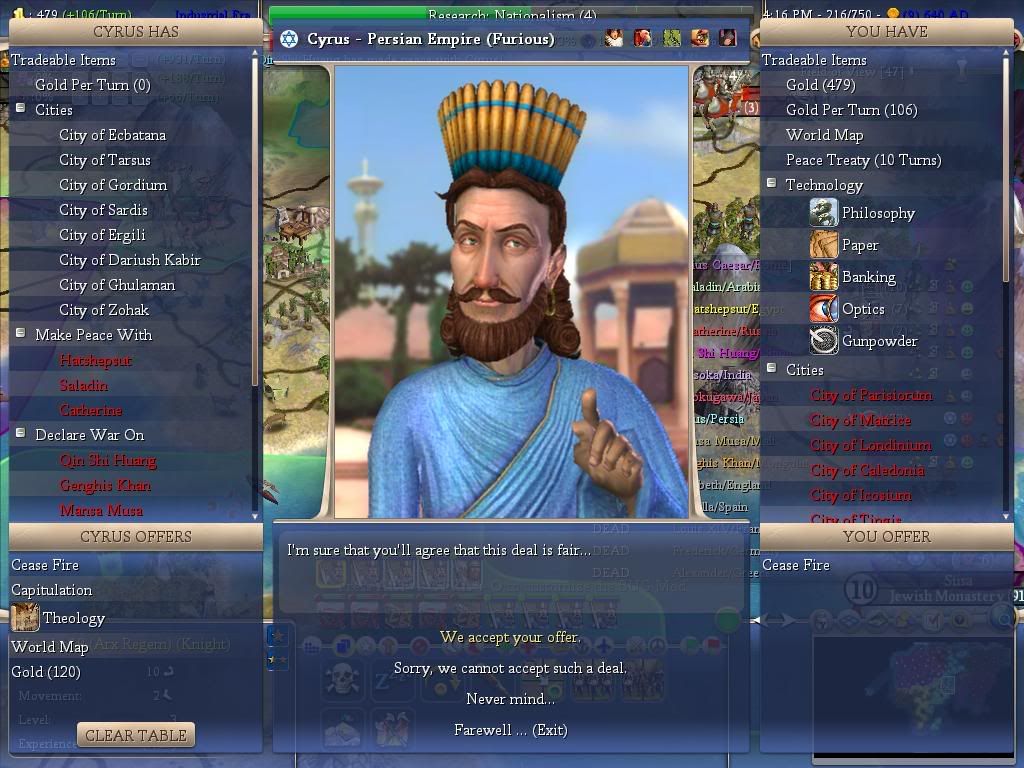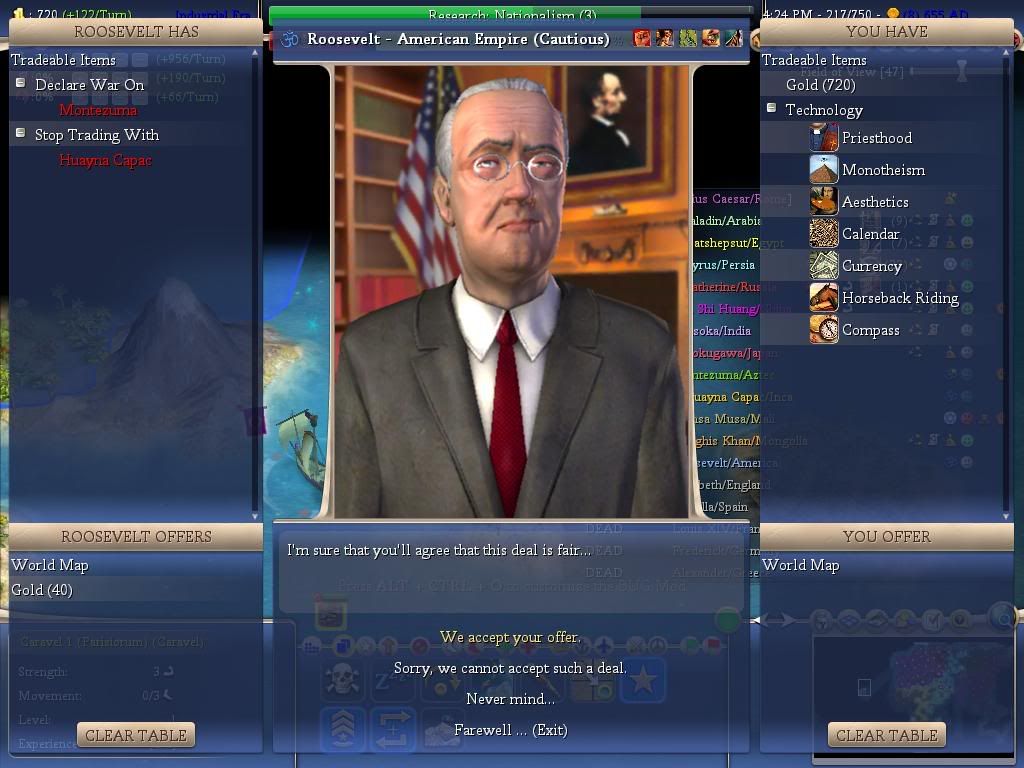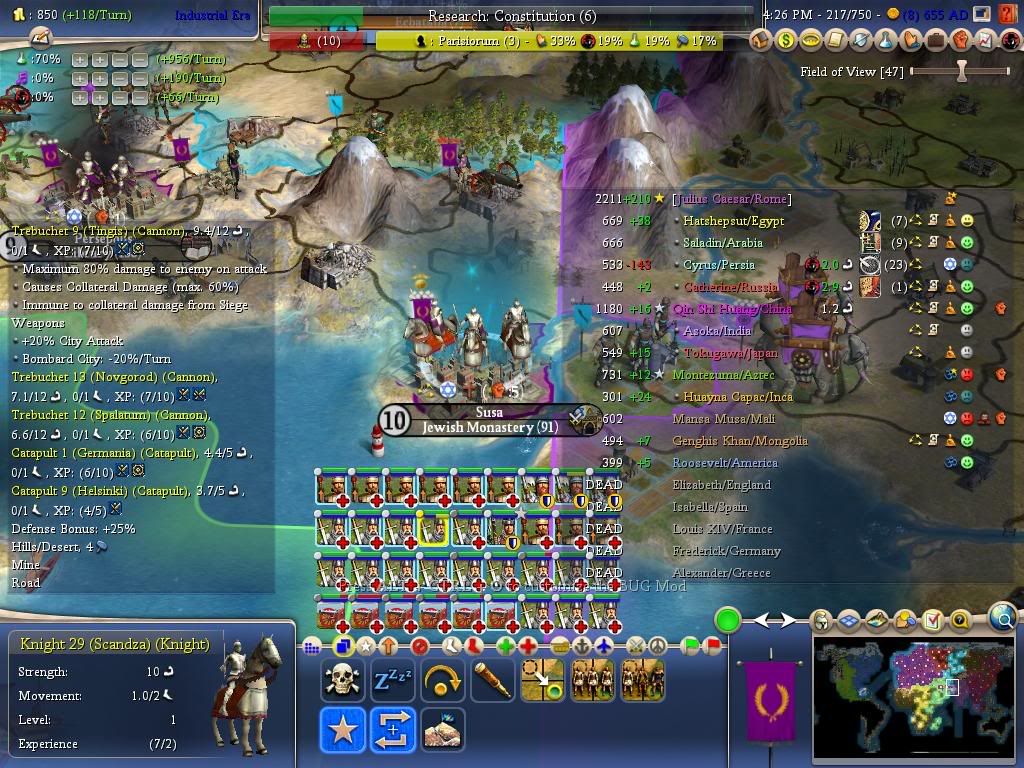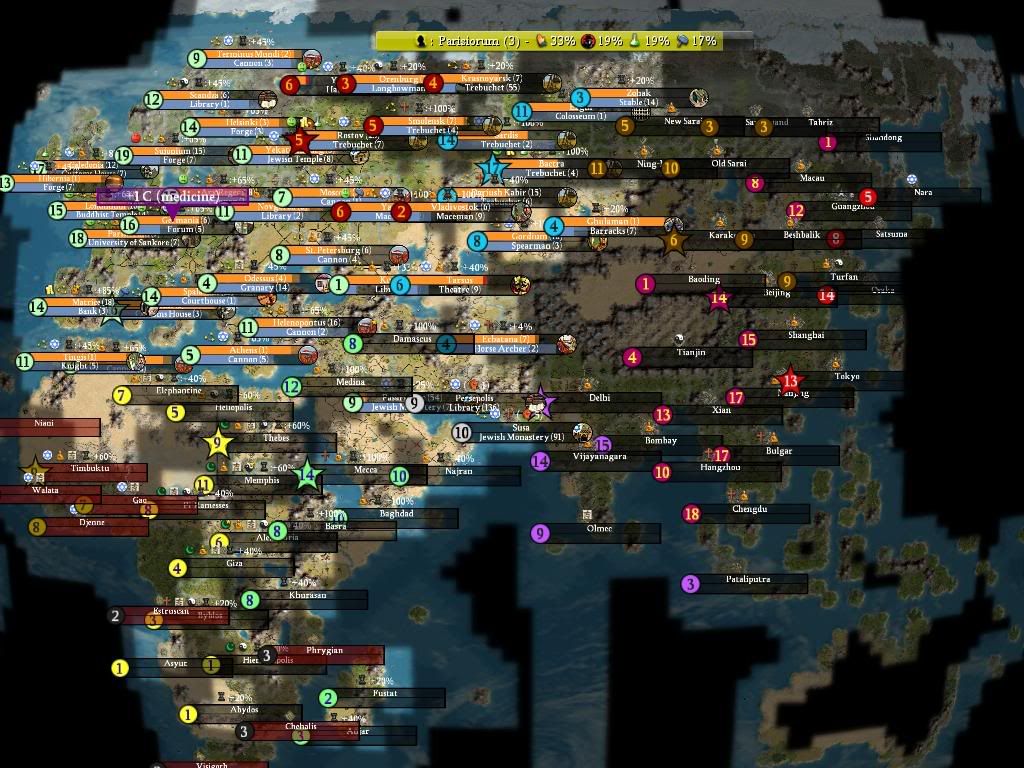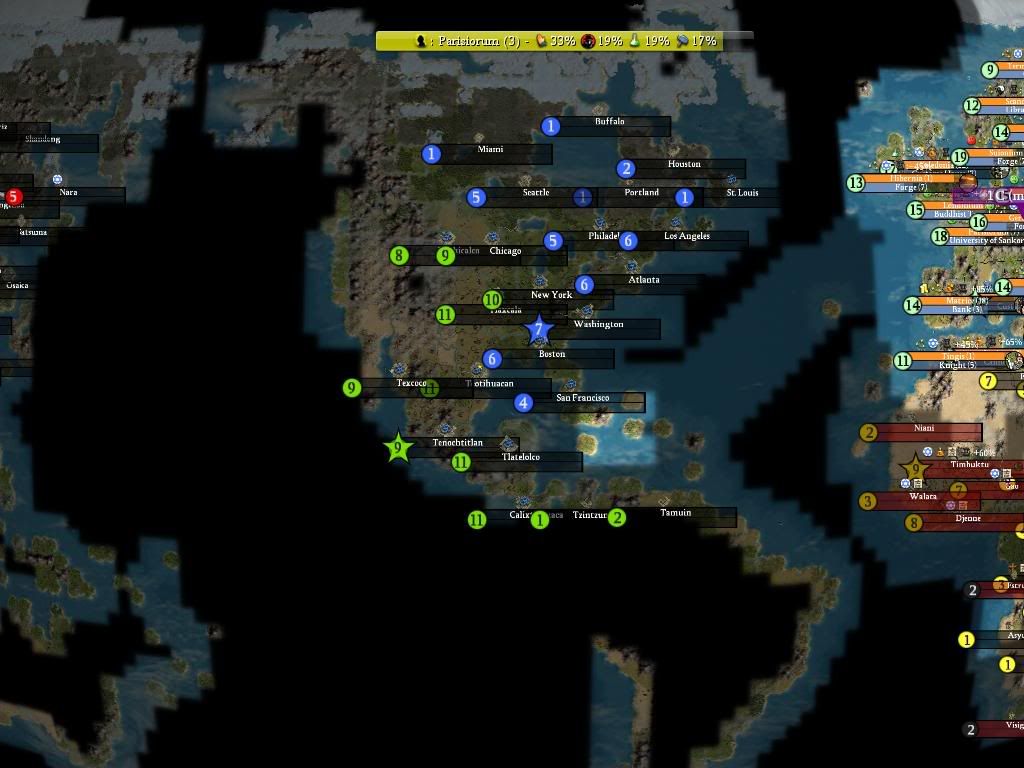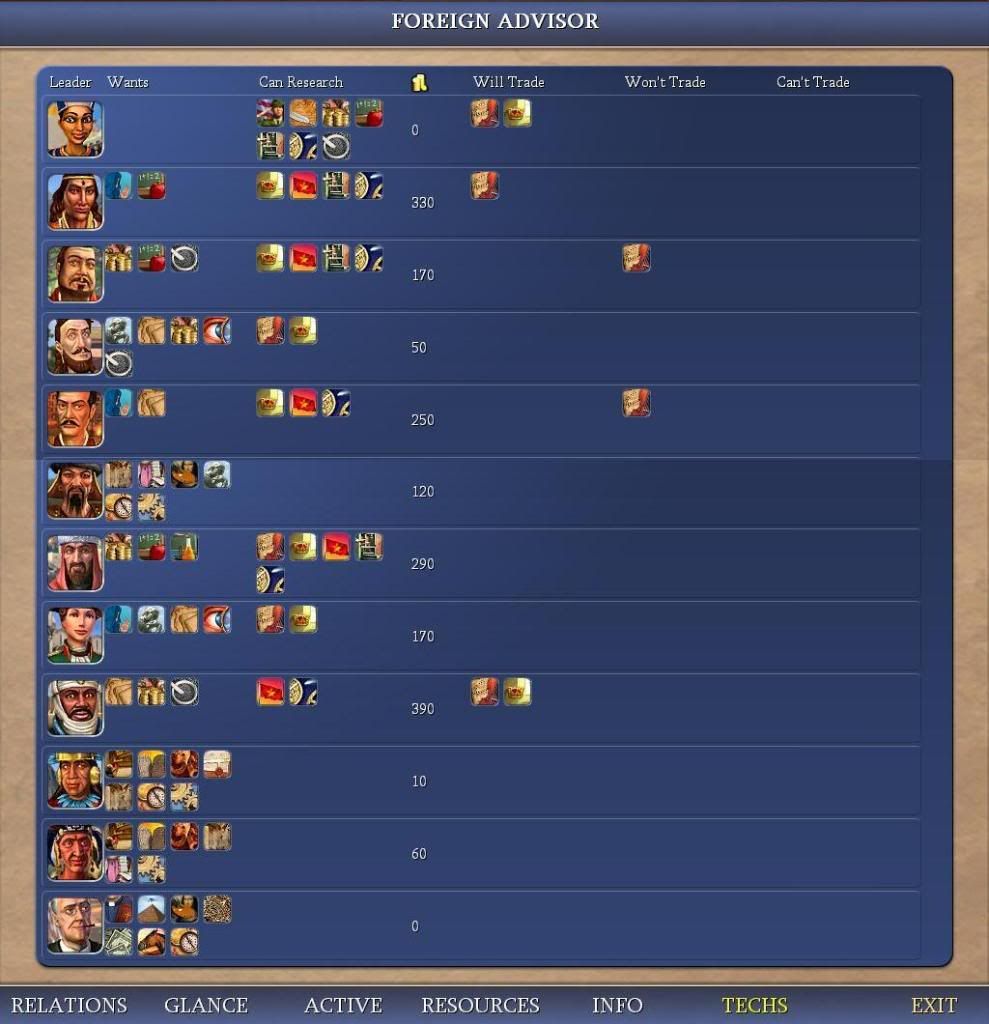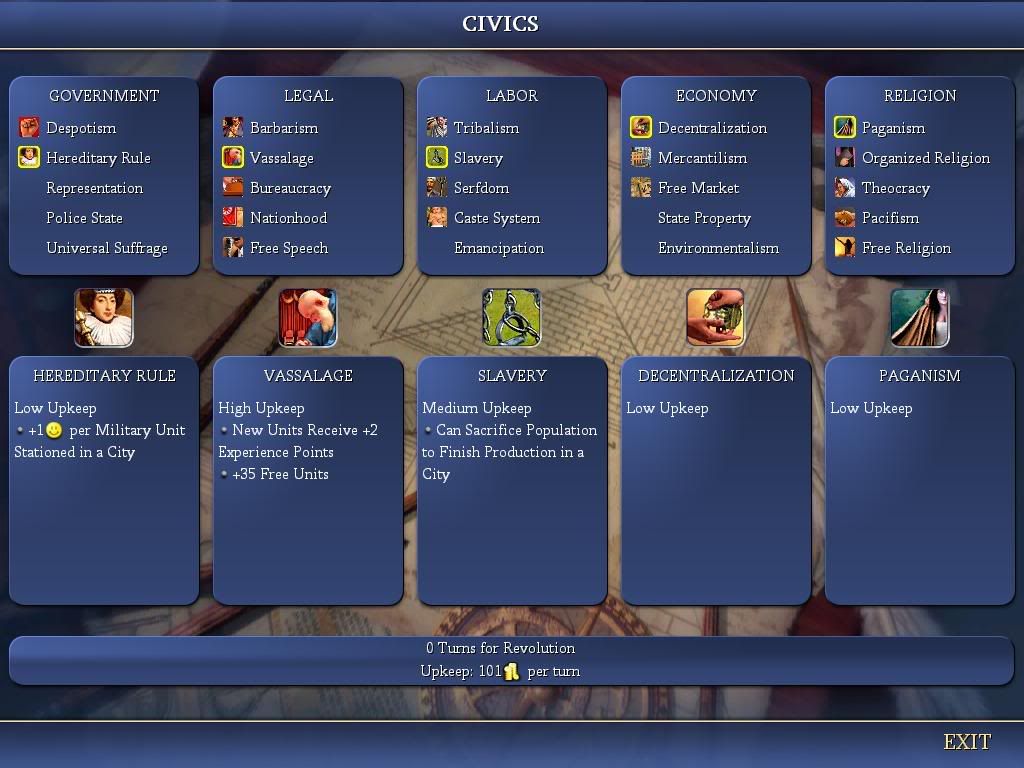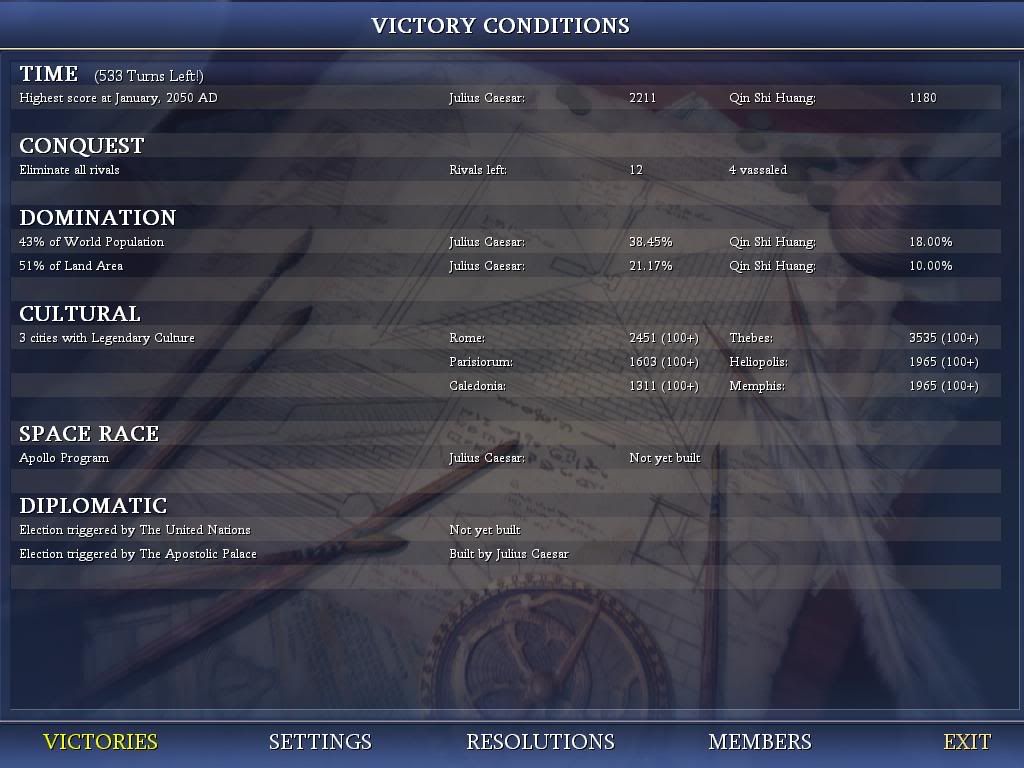It was a banner day. The wedding of Julius Caesar and Catherine II was not merely a celebratory feast the likes of which had never been seen, but also represented the merging of the Roman and Russian empires. Resource gifts were sent across Eurasia (in exchange for Gold Per Turn for the lucky bride and groom, of course), and the "I dos" were exchanged in the snowy retreat of Orenburg, on the shores of the Arctic Ocean:
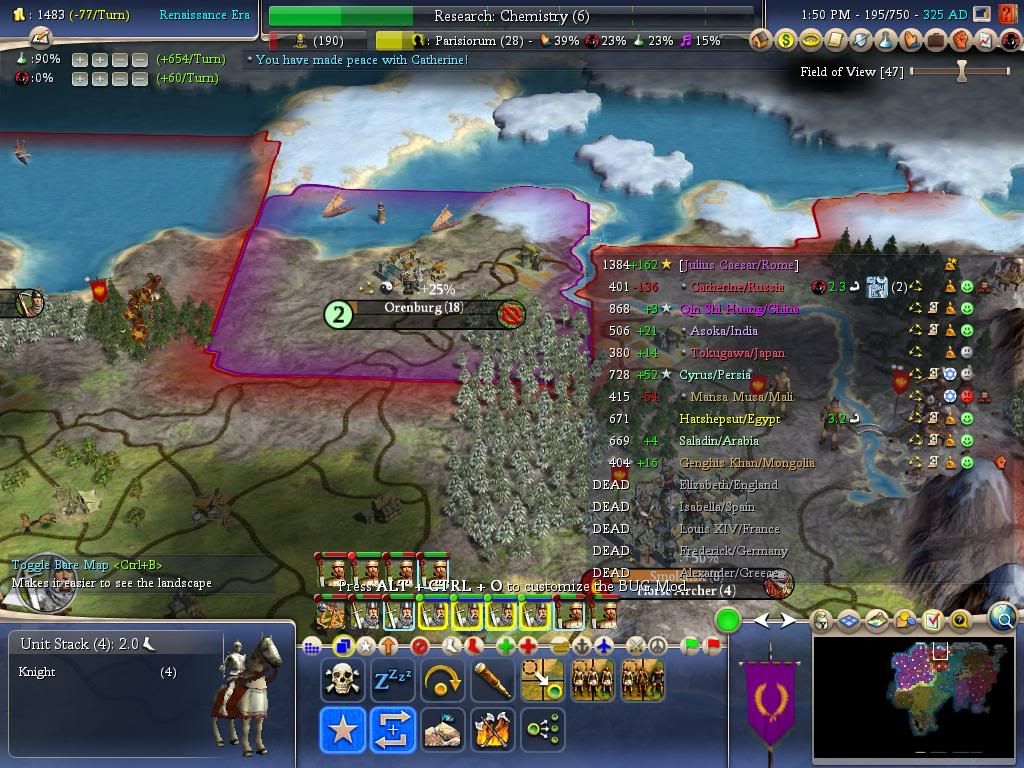
Generals and a good number of common soldiers from both sides were there as witnesses and celebrants, and the years of fighting were quickly forgotten over potent Roman wine and Russian vodka. The city was bequeathed to Caesar as Catherine's dowry, which was a fine and noble gift. But, honestly, the people there were more Slavic than Latin, and so the town passed back under Russian rule, a gesture by the Emperor that further cemented the bonds between the two European peoples. Orenburg still bears a plaque commemorating its brief time as a Roman city. With the Capitulation ceremonies complete, Catherine quickly improved from Annoyed to Pleased, resulting in a quick consummation of the marriage. Scandalous rumors persist of a horse being led into the nuptial chambers, but polite members of society dismiss them out of hand.
Caesar's next major hurdle stormed into his throne room the day after his second marriage. Isabella was furious, her hair an unkempt mane and her eyes filled with the fires of
Naraka. Caesar was unmoved. "Problem, darling?"
"Problem!? I'll tell you what my problem is, you filthy adulterer! You send me off to Madrid,
my city, telling me to 'tend to my prayers.' Then I find out that you used my convenient absence to marry that Russian harlot!?"
Caesar pinched the bridge of his nose in quiet aggravation. "Russian
queen, Isabella. Moscow, Novgorod and St. Petersburg may have been won, but she still controls vast territories that would have been hostile to us without this arrangement. And what do you control? Your 'Madrid' has been Matrice, a fully Roman settlement for millennia now. Even your hold on Buddhism is slipping. You may have founded the faith, but I built the shrine, and now reside as pontiff in a Palace built by Catherine. Quite frankly, you offer me nothing but headaches and indigestion. You have become little more than a disease in my empire. And, while we may not have researched Medicine yet, we can still agree that diseases should not be allowed to malinger."
And with that, Caesar grabbed a gladius and struck down Isabella in his own throne room, in full view of the court. Julius was prepared to justify his actions, to lay low while the furor died down, even to defend himself from a Spanish loyalist. He was rather taken aback when the room erupted in spontaneous applause. The assembled nobles were sick of the frigid moralist, with her constant nagging and complaining about not "being treated like a queen." According to tales coming out of the Russian courts, Catherine was a much more... entertaining monarch.
As Rome adjusted to being the capital of a twin monarchy, an emissary from Egypt, a bald eunuch bearing oils and gems, arrived bearing a message. With her good friend Catherine having gone from persecuted enemy of Rome to favored consort, Hatshepsut's final concerns about submitting her own civilization to the mercies of the European superpower had been quelled:
Caesar gingerly broached the subject of a second marriage to Catherine, remembering vividly the tantrums Isabella had thrown regarding the idea. The Roman emperor was taken aback when her response was to smile eagerly and agree to the idea, but only if she were allowed to participate in "all aspects of the union." Caesar swallowed hard, then allowed himself a smile of his own. It's good to be the emperor.
His marital affairs finally resolved, and with his empire nearly doubled in size, Caesar turned his eyes to the rich Arabian peninsula and its master, the friendly but fiercely independent Saladin. The Romans strove to appear benevolent at first, sending Philosophers to teach their science at the Madrassas in exchange for the tutelage of Arab sailors with knowledge of the Compass. The inclusion of Saladin's maps, a seemingly innocuous throw-in, was, of course, the real objective. Meanwhile, the troops from the Russian campaigns quietly redeployed to Turkey and the eastern coast of the Black Sea, prepared for a vicious pincer attack on the Christian holy lands. A few troops in North Africa even moved to strike from the Suez.
After a few short years, it was time to end the pretenses:
The point of the war was not to crush Saladin, though. It was merely to clue him in to the fact that he was not, in fact, "fine on his own." And the best way to accomplish this education was, of course, overwhelming force. Unfortunately, the war with Catherine had expended our siege, and we hadn't spent sufficient time replenishing it, so the southern war, on Medina, was hopelessly bogged down against the city's defensive fortifications.
In the north, though, the Legions had more success:
Kufah was a useless little city, more valuable to nomads seeking shelter from the hot desert sun than to a proper empire. Nevertheless, Caesar made a major show of instituting a proper takeover, assigning a baron to rule over the city, squashing insurrection, and completely changing over the currency to the Roman standard.
Suitably cowed, Saladin decided that his people were better served licking the Romans' boots than being trampled beneath them:
This may well be a controversial move on my part, but I feel that the massive AI bonuses to production and research make Saladin's cities much more productive under Saladin than under Caesar. And he, too, is a cheerful member of the Buddhist alliance, immediately becoming Pleased with us upon joining the ranks. I even traded him Gunpowder for Optics and Literature to make him a valuable military ally (and to finally get a Caravel off to check on the New World).
Caesar, meanwhile, was just glad to finally have another male ruler in the house to distract the insatiable Catherine. Unfortunately for the emperor, the morose Saladin found himself more attracted to the perpetually-cheerful Hatshepsut than the disturbingly forward Russian. The Arab leader could frequently be found sitting in the gardens, reading to the Egyptian queen or contemplating a bird or flower with her. Finally the evidence was too much to laugh off, and even the pragmatic Caesar's heart was softened. Hatshepsut and Saladin were quietly married in the gardens that they loved so much, and the Roman emperor was left once again alone with Catherine. "I'm getting too old for this," he was heard to say at Saladin's ceremony.
All was not roses on the domestic front for the intrepid King of the World, but militarily, he had no equal. With Trebuchets at the front and Cannons on the way via Liberalism, it was time to subdue the
other major threat in the Old World:
Cyrus was a heathen, and a disagreeable cur besides. Caesar would be willing to add him to his menagerie of vassals, to be sure, but he would need to be humbled first. Rome's vast army poured across the border between Saladin's Arabia and the Persian colony of Pasagardae, only to find that the city was woefully underdefended (Three units- a Longbow, a Maceman, and I think a Horse Archer).
Feeling wrathful at this insult to his ability to wage war, Caesar disregarded his siege and simply ordered his Knights to charge on the same turn as the declaration of war. The rapid strike was a resounding success:
And it was time to begin the long slog east to Persepolis.
As Roman troops marched along the coast and dueled with Cyrus' counterattacks, the Scientists back home made a valuable discovery:
Liberalism in Rome was not the theoretical musings of Salon-bound philosophers that we had in our world. No, it was founded by practical men of the Forge, whose experiments in metallurgy unlocked the secrets of one of the most powerful metals of all: Steel.
As smithies across the empire began gleefully pumping out Cannons, the minor functionaries of the Apostolic Palace came forth with an interesting offer which comprised the third quest of our game:
And the first quest that I have no interest in completing. 16 landmasses is... a bit much. Are there even 16 landmasses on the map?
As Russian forces tangled with Persians in Siberia, and as Roman forces set up siege camps outside Persepolis, the Chinese decided to make the war on Persia a general crusade. This obviously accelerated the clock on our own particular war of conquest. China is shaping up to be our final enemy yet again before we end up getting to visit the New World, and we can't have him beefing up his production with Persian cities. Cannons were being built, but not quickly enough. Trebuchets were being sent to Pasagardae to be refitted. The war had become a race.
Roman production was boosted in 565 by the construction of the Angkor Wat Memorial Temple:
It was dedicated to the late Isabella of Matrice (who is said to have died peacefully in her sleep some 200 years before).
Of course, war with Persia means war with the Mali. War was as slow this time as it was when Mansa Musa was beholden to Catherine, though this time, Hatshepsut's people suffered from Mali raids:
Caesar promised the sobbing queen of the Nile that he would exact revenge for Mansa Musa's atrocities, though, honestly, he was more interested in crushing Cyrus beneath his iron heel.
It was time to take Persepolis:
The city had little of value outside of its rich mines and ability to work them. But, as the seat of Cyrus' power, the city held great significance as a symbol of victory.
580 was an amazing year for the empire:
A minor dynastic struggle saw the Merchant class seize power, casting down the petty nobles that had lorded over them for so long. Caesar's reign was secure, but it was clear that the middle ranks of his power structure needed some reorganizing. The new meritocracy led to new efficiency as a Great Merchant rose through the ranks to become Seneschal of the Imperial City. In addition, the new regime funded exploratory efforts in the hills around Icosium, resulting in the discovery of a very lucrative silver vein that had previously been untapped.
With Persepolis fallen and Cannons at the front, the subsequent siege of Susa was much less onerous:
And the troops were, again, repositioned to threaten Ecbatana:
Unfortunately, here Cyrus made his stand. As our Cannons stripped the city's massive defenses, more and more troops swooped in to garrison the ramparts. And Cyrus began floating the idea of Capitulation to us, which meant that he was inevitably also floating it to Qin Shi Huang. We attempted to pass a resolution ending China's role in the conflict, but it was defied by, of all people, Cyrus and Mansa Musa. Alternative methods to bringing about peace would be necessary.
With the discovery of Economics in Rome, Sir Thomas Roe came to power, promising to further streamline budgets beyond even the improvements of the miniature coup of 580:
His efforts produced a Golden Age across the empire, spurring Production and Research to new heights.
With his civilization humming with potential, Caesar felt confident in bribing Qin to call off the dogs:
And, with the threat of China nullified, he allowed Cyrus to kiss the ring:
Cyrus, being a heathen, is not a full member of the Roman bloc. His arrangement is blatantly more one of being allowed to live than being welcomed into the fold. Nevertheless, this clearly establishes two Old World "sides": Ours and China's. With Genghis Khan and Mansa Musa as minor powers (and we're still at war with the Mali in hopes of absorbing them soon).
As a final point in the round, our Caravels made landfall in the New World. Montezuma (and his vassal Huayna Capac) were embittered, angry people unwilling to trade, but Roosevelt of the Americans was willing to show us his valuable maps:
As you can see, opening the New World to the Deity AI still doesn't make them anything but the savages that they've always been.
Anyway, we stand ready to move on the Chinese bloc, starting with the Indians. Here's our army:
With, of course, more troops being trained as we speak.
The maps of the Old and New Worlds as we know them:
As you can see, access to South America also hasn't turned Monty off from eating America's corn flakes, either.
The tech situation:
We have our vassals working on Astronomy, Music and Printing Press for us, so I'm working on Constitution, myself.
The Civics glance:
We're in a Golden Age, so I think we should revamp our archaic government. To what, though? And should we wait for Representation?
Finally, the victory screen:
I think we're well on our way to a quick and easy Diplomation, here. Hattie's pushing Culture, which is to be expected, but I don't think she'll get there quickly enough. What do you all think? Here's the save:




 But anyway having her as vassal would save you some time and time is a thing that you never have enough especially on Deity
But anyway having her as vassal would save you some time and time is a thing that you never have enough especially on Deity 
 Alteast his muskets were useful to eat up the english redcoats away from my cities, so it wasn't a total lost
Alteast his muskets were useful to eat up the english redcoats away from my cities, so it wasn't a total lost 
